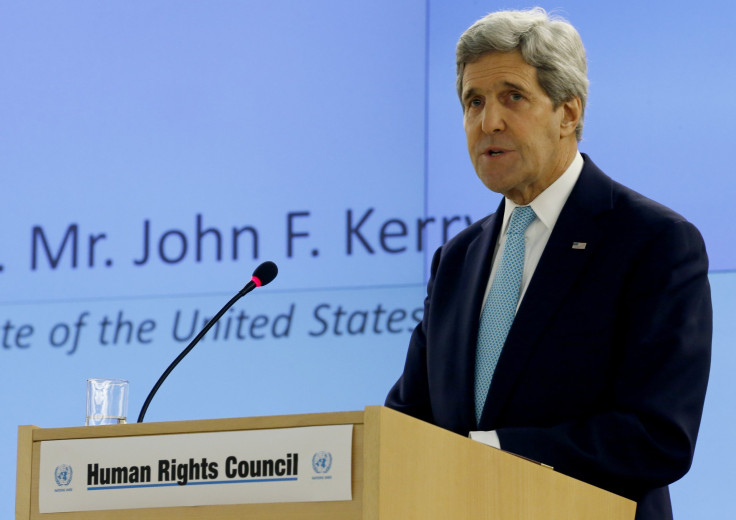Kerry To Meet Iran's Foreign Minister Over Nuclear Talks; IAEA Says Iran Suppressing Information

U.S. Secretary of State John Kerry is scheduled to meet with Iranian Foreign Minister Javad Zarif to discuss an agreement to curb the latter's nuclear program, just two days after Israeli Prime Minister Benjamin Netanyahu’s controversial address to the U.S. Congress on Tuesday. While many believe that Netanyahu’s speech could damage the Jewish state's relationship with the U.S., Kerry's push is drawing its own set of critics, according to a report.
Kerry has been pushing the protracted seven-nation talks with Iran to limit its nuclear program, but his attempts to reach a deal has caused concern among experts that the “inordinate attention” that the secretary of state is dedicating to the deal has created an impression that “he wants this agreement more so than the Iranians,” The New York Times reported. Kerry is also scheduled to meet with officials from Iran and the six world powers negotiating with Tehran over its nuclear program in Montreux, Switzerland, on March 5.
“He has made a huge investment of his time and energy in the talks, and his personal, hands-on involvement in recent months has been crucial to building momentum toward a deal,” Robert Einhorn, a senior member of the Brookings Institution in Washington D.C., who served on the U.S. team in talks with Iran from 2009 to 2013, said, according to the Times.
On the other hand, Kerry’s eagerness to close the deal might prompt Iran to press for concessions as the nuclear talks enter their final stage, Ray Takeyh, a former State Department expert on Iran told the Times, adding that Kerry’s recent warning that the U.S. would end the talks if the Iranians refused to compromise, was not taken seriously by Tehran.
Meanwhile, the head of the U.N. nuclear watchdog, International Atomic Energy Agency (IAEA) said on Monday that Iran is still suppressing key information from his staff, which is investigating Tehran's atomic facilities.
"Iran has yet to provide explanations that enable the agency to clarify two outstanding practical measures," Yukiya Amano, the agency's chief, told the body's Board of Governors in Vienna, according to Reuters. "The Agency is not in a position to provide credible assurance about the absence of undeclared nuclear material and activities in Iran, and therefore to conclude that all nuclear material in Iran is in peaceful activities.”
The IAEA is likely to monitor any possible agreement between Iran and the six world powers along with its own investigation into Iran's nuclear program.
Netanyahu has expressed his unhappiness over the negotiations with Tehran, stating that an agreement will allow Iran to become a nuclear weapons state and pose a threat to Israel. But, Iran has denied the allegations, saying that its nuclear program is entirely peaceful. Netanyahu is due to speak at a pro-Israeli group's conference in Washington on Monday ahead of his speech to Congress, which Kerry described as "odd, if not unique."
Meanwhile, more than 180 former military and intelligence officials from Israel urged Netanyahu to cancel Tuesday’s speech.
“When the Israeli prime minister argues that his speech will stop Iran from obtaining nuclear weapons, he is not only misleading Israel, he is strengthening Iran,” Amnon Reshef, the founder of an alliance calling itself Commanders for Israel’s Security, said Sunday, according to The Jewish Daily Forward.
“The way to prevent a nuclear Iran is by strengthening the alliance between the countries, between the U.S. and Israel, and between Israel and the international community. It’s already impossible to conceal the rift with the Americans, and it’s impossible to accept such a rift. We believe that this constitutes a clear and present danger to Israel’s security.”
© Copyright IBTimes 2025. All rights reserved.





















